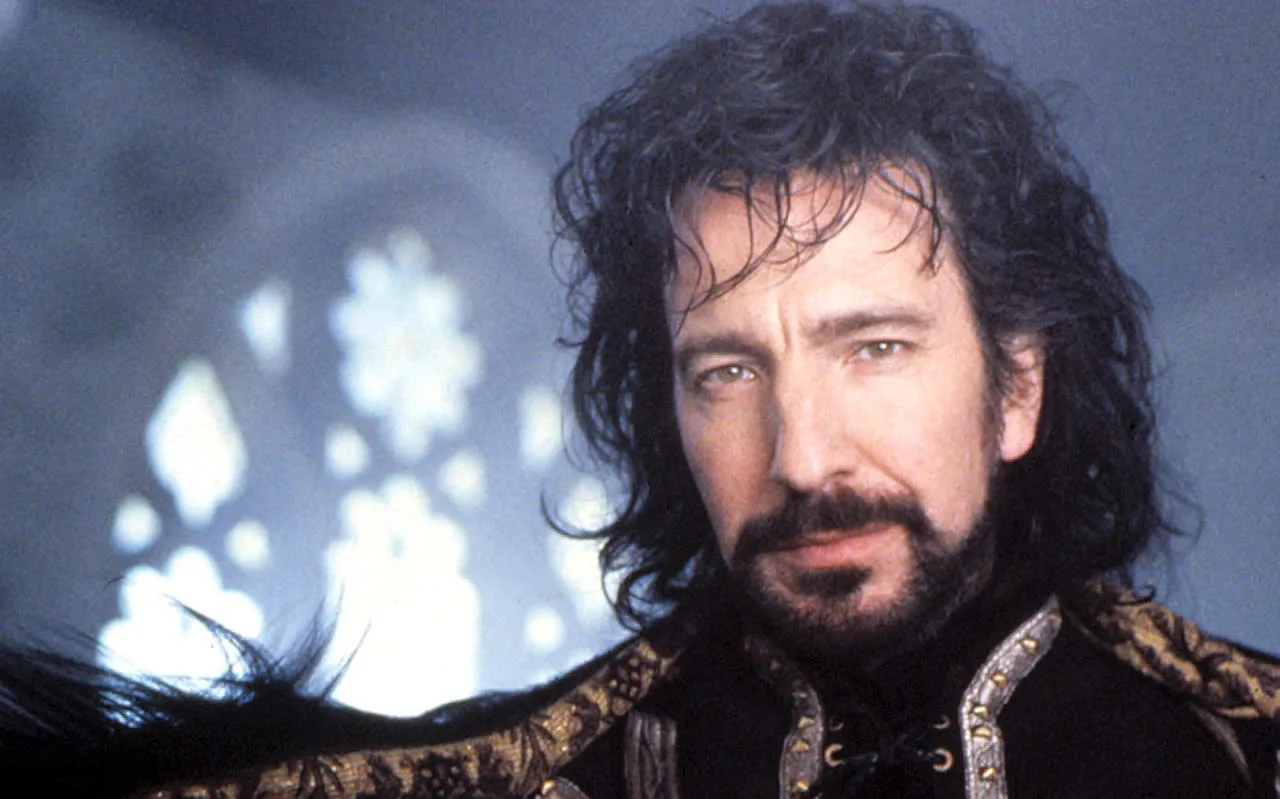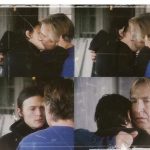- By Garth Pearce
- (Mallard Press, 1991)
The Sheriff of Nottingham
Actor ALAN RICKMAN brings a shudder of fear to the screen every time he makes his entrance as the Black Magic – worshipping Sheriff of Nottingham. Already, he has established himself with one of cinema’s most memorable bad-guy performances as the gang boss in the action film Die Hard (1989).
In real life, though not thankfully having the edge of evil or nastiness he so readily brings to his roles, Alan Rickman does not suffer fools. He chooses his words carefully and they are ladled out as if he is not really happy talking about himself at all. On the offer on Robin Hood, for example, he says: “I was not particularly taken with the idea. I thought: ‘What? Robin Hood – again?’ “
But there was a change of heart once the script was in his hands: “I read it and thought of more potential for the Sheriff,” he says. “I had been doing other things between Die Hard and this, so I thought it was okay to arch my eyebrow again in villainy.”
He was with Kevin Kline in The January Man (1989) and with Tom Selleck in Quigley Down Under (1990). “Fortunately, I learned to ride a horse in Quigley, which was set in the Australian Outback,” he reports. “I discovered later that all those scenes ended up on the cutting room floor. I was upset about that, until I got on to Robin Hood.
“I am supposed to be sitting on my horse on a ridge. On the day of the scene, director Kevin Reynolds comes up and says: ‘You are okay on a horse, aren’t you?’ I then find that I am going to be riding down a slope on a nervy horse and I can only use one hand, because I am holding a sword in the other. That is the moment I thanked God for all those riding lessons a year before!”
He was also warming to his part when news came through of the all-star cast: …”I was excited about Micheal McShane as Tuck, because I love Whose Line Is It Anyway,” he says. “And what with Geraldine McEwan as Mortianna and Mary Elizabeth Mastrantonio, who I worked with in The January Man, I knew I was with some excellent people.”
Alan also appreciated the energies of Kevin Costner: “Hollywood is such an unforgiving place that actors like Costner, Selleck and Kline do not stay at the top by accident,” he says. “They are all very talented and bloody hard workers.”
Alan Rickman is known mostly for his British stage work. But the transfer of Les Liaisons Dangereuses from London to Broadway, New York introduced him to the American audience. There were many who felt that he should have also got the film part in Dangerous Liaisons (1990), which went to John Malkovich; if Rickman feels any resentment now, he certainly does not show it. “I had absolutely no film background at all,” he says flatly. “It was going to be a big risk.”
Instead, he was given his key role in Die Hard: “The producer, Joel Silver, came to see me in my dressing room in New York and gave me a very strange screen test. Someone came in with a hand-held video camera, probably to show Bruce Willis at a later stage, and I had to do one or two lines. I was hired because I was cheap. You have to be realistic.”
But the role came at a perfect point: “After doing eight stage shows a week for three hours at a time, I was working in a warm climate, staying in a pleasant Hollywood house and doing only a page of dialogue a day. Films do have their advantages…” []



